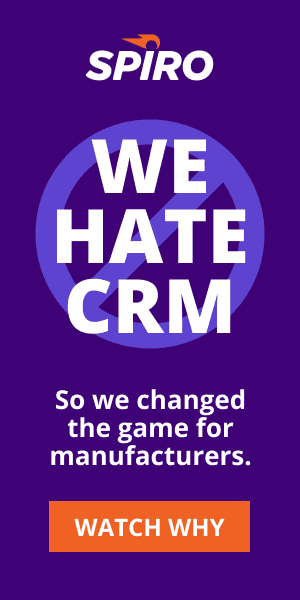3 Benefits of Sandbagging and Why Every Salesperson Should Do It
I once worked with a guy who pushed his sales team to be so truthful that they could never live up to the expectations he made them set for themselves.
He was obsessed with not allowing his reps to “sandbag” their deals. I get why he was so stubborn against deflating their numbers, as the product we were selling was perishable and if we over-promised the product to our customers, but then under-reported our deals to the manager, this could end up in us not having enough product to deliver. We would be screwed.
But making his team err on the side of over-sharing every deal in the works isn’t always a good idea.
Here are the three things you need to know about sandbagging:
1. What is Sandbagging?
The term “sandbagging” comes from the late 1800s, and refers to somebody who sneaks up on someone else and hits them with a sandbag. It was a very underhanded move back in those days.
In today’s sales world, sandbagging is used to describe a rep holding back his deals a bit, and fooling their manager into thinking that their forecast is worse than it actually is. Basically, it’s the concept of “under promise, over deliver”. And unlike the underhanded connotations it had in 1880s, sandbagging can actually be a good thing.
You’re filling your sandbags with deals and may unexpectedly surprise your manager with more closes at the end of the month than they are expecting. You sneak up on them and BOOM, surpass your quota.
2. Why Should You Sandbag?
You may think that the main reason to sandbag, is to set lower expectations for yourself, and thus easily impress your boss. But, be careful of when and why you choose to under-report your deals.
Here are a few reasons you may want to consider trying this tactic:
- Reduce Attention – Big deals attract attention from upper management. If you have a deal that may be huge, but the pressure of extra eyes on it makes you fumble from the stress, then you may decide to downplay the size of the deal until you are more certain.
- Protecting Next Quarter – It’s sometimes best to keep a deal or two in your pocket that you can push out to the next quarter to start off strong. But if your current quarter take a downwards turn, then you have those deals you could probably quickly close surprise your manager at the end.
- Getting Your Feet Wet – As you close deal after deal, there will be signs that you learn to spot which generally mean a deal is going to close, or it’s not. But when you first start out in sales, you may not be that comfortable with seeing these clues and accurately predicting your results. You may not want to over-promise and keep under-delivering, so sandbagging may be a good option while you get a hang of the sales game.
3. How to Sandbag
So when you are taking the “sandbag” approach to forecasting, you will want to consider the following aspects of your potential deals in a conservative manner:
- How likely they are to close
- The revenue amount of a deals
- When the deals are going to close
For example, say you have a deal that could range from $10,000 to $20,000 in revenue and may close this month if things progress quickly. You would forecast the worst case scenario of earning $10,000 and closing the following month.
Salespeople are naturally optimistic, but in sandbagging, you want to be conservative and err on the side of under valuing your deals.
Whatever you do, don’t skip entering opportunities into your CRM system altogether. Then you’ll surely look like a fool if they close! Simply add them, but discount the likelihood of them working out in the best case scenario.
By sandbagging, you are not being completely dishonest, but rather open to the idea that things out of your control do happen. Faxes don’t go through, customers get tied up with other things, and people decide that they want to go with your cheapest option. Luckily, sometimes things do go in your favor (especially if you are using an AI-Powered CRM, like Spiro), but you’re in a better position to assume the worst and be pleasantly surprised.
Want to give this a try? Be open about it 🙂 — it’s OK to tell your sales manager what you’re doing, as long as you do it in good humor. After all she has a number to hit as well and is probably sandbagging her boss!

